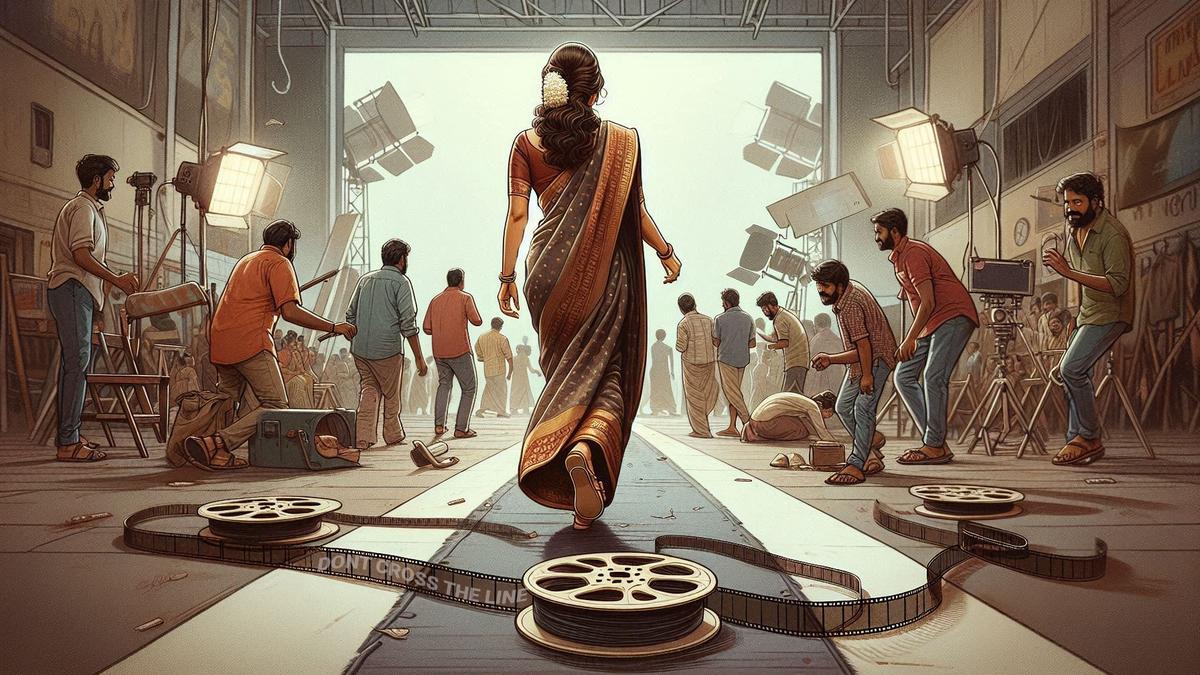
I was reminded of my ‘shelf value’: Female artistes in India on Hema Committee reckoning
The Hindu
Female actors and technicians from across industries speak on the aftermath of the Hema Committee report, the push for similar panels in other states, and their everyday negotiations for safety and dignity
The Indian film industry is patriarchal, exploitative and needs a radical reset for the safety and sanity of female professionals engaged in the cinematic arts. This is the opinion voiced by several prominent female artistes and technicians from across regions who spoke to The Hindu in the aftermath of the Justice K. Hema Committee report. The 235-page report, submitted to the Kerala government in 2019 and published with limited redactions five years later, exposed instances of sexual abuse, gender inequality, illegal bans and gross labour violations in the Malayalam film industry.
Following the release of the report, several female actors came forward with accusations of sexual harassment against many prominent actors and technicians in Malayalam cinema. Its fallout saw the executive committee of the Association of Malayalam Movie Artistes (AMMA) being dissolved amid growing allegations of sexual assault and misbehaviour against some of its members. All the 17 members of the committee, including president and senior actor Mohanlal, submitted their resignation.
The findings of the Hema panel sent shockwaves across the Indian film industry. Throughout the country, film bodies and unions have been forced to reckon with the revelations of the report and enforce redressal forums. In Tamil cinema, the South Indian Artistes’ Association (SIAA) (Nadigar Sangam) resolved to impose a five-year ban from the film industry on the perpetrators of sexual offences if a complaint is found to be true. Members of Film Industry For Rights and Equality (FIRE) have asked the Karnataka government to constitute a committee headed by a retired judge to study and report on issues faced by women, including sexual harassment in the Kannada industry. Similar demands have been raised by actors and technicians in the Telugu, Bengali and Hindi film industries. In Malayalam, meanwhile, the formation of a new collective called Progressive Filmmakers’ Association has been mooted, dismantling past structures of power and prioritise equality and social justice.
“While the #MeToo movement fizzled out in a short duration, something like the latest committee is being taken more seriously and spoken about in length,” says actor Priyamani, who has worked in Telugu, Tamil, Kannada and Hindi cinema. “Forming a committee in other industries and more such reports coming out would be beneficial”.
Actor Swara Bhasker, one of the first — and few — prominent voices from Bollywood to respond to the report, says that while she hopes other states would institute similar panels, it is “not enough to merely investigate”.
“The governments at the centre and state should institute guidelines specific to the film industries and ensure that there are protections for women (and men) working in all departments of the film, TV and media industry and there ought to be a government-sanctioned grievance redressal cell that can help complainants and victims and is accountable to the public,” Swara stresses.
The #MeToo movement in 2018 revealed shocking instances of sexual misconduct, leading to legal cases in some instances. Singer Chinmayi Sripada was one of the first voices to speak out from the Tamil film and music industry, stating that there were no institutional structures in the media and entertainment industry to address issues of sexual harassment. Nevertheless, a culture of intimidation and silence has persisted in the film world, preventing dissenting voices from being heard. As highlighted in the Hema Committee report, male actors, filmmakers and producers wield incredible power, capable of banning and blacklisting anyone they please. Threats of financial harm and professional setbacks often deter victims from naming names.













